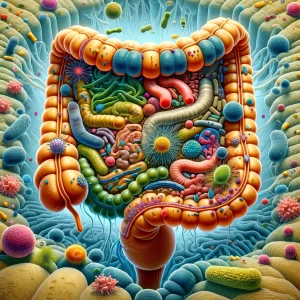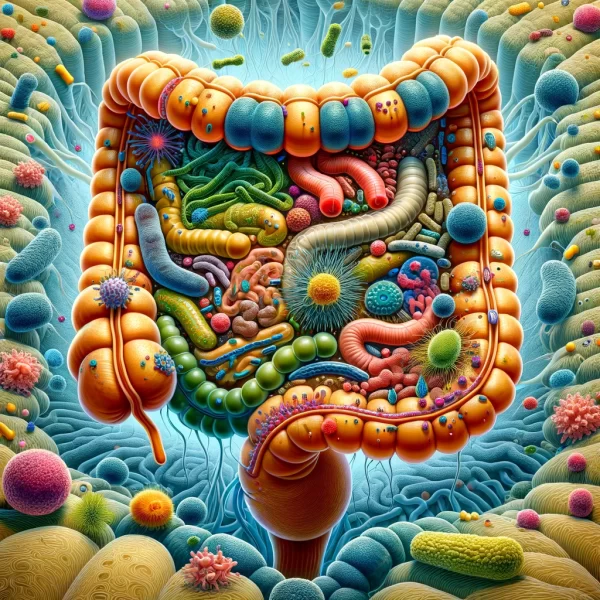The microbiome is found in the gut and is made up of an ecosystem consisting of bacteria, viruses, and various microorganisms. There are trillions of microbes in the gut, many different varieties and they need to be well-balanced and well-fed to ensure the body maintains homeostasis of mental and physical health.
The microbiome digests certain nutrients, defends against infections, and produces neurotransmitters, chemical messengers sent to the brain to regulate many body systems such as serotonin.

There is strong evidence showing the link between the brain, gut and the microbiome and their effect on the immune system and mental health.
Emotional disorders, such as depression, manifest frequently alongside gastrointestinal disorders, such as Crohn’s disease. Studies have shown that intestinal infections significantly predict future anxiety disorders and patients with major depression have altered faecal microbial diversity. Furthermore, chronic stress can lead to a reduced diversity of microbiota. Therefore, I believe it is important to consider the whole lifestyle of a patient to provide the best treatment.
Dietary intake has a significant effect on gut microbes. An increase in prebiotic foods (the food source of the microbiome), like fibre, oats, beans, carrots and apples, and probiotics such as fermented foods, like kefir, tempeh and sauerkraut, can increase diversity of the microbiome and lead to improved mental health, fewer gastrointestinal complaints, less anxiety, and better sleep.
